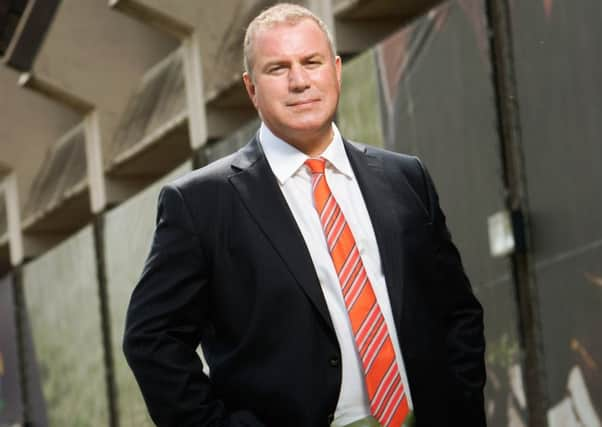£1bn focus on sport helps BT raise game


Now ten months old, BT Consumer has poured more than £1 billion into BT Sport, its primary weapon in the challenge to market leader BSkyB. Among other things, these investments have included £738 million on Premier League matches and a further £152m in club rugby deals.
There is no doubt more to come, but initial efforts have already yielded dividends: earlier this year, the consumer division posted its first yearly revenue growth in more than a decade. Meanwhile, industry experts reckon BT Sport has boosted the group’s brand value by 67 per cent during the past year to £9.2bn.
Advertisement
Hide AdAdvertisement
Hide AdBT Business – the less sexy part of the former retail operation – has paled so far in comparison with its flashy consumer counterpart. But chief executive Graham Sutherland says his division is now on the verge of stepping out of the shadows.
“Clearly, that has been a big story for the business – we have made some big investments in content in things like BT Sport,” says Sutherland, who paid a visit last week to the newly renamed BT Murrayfield Stadium in Edinburgh.
That sponsorship deal, confirmed at the end of last month, is believed to be worth about £20m. It logically follows the group’s focus on sport as a way of capturing and keeping customers – something Sutherland must now successfully develop in the commercial market.
“Coming out of our re-organisation, business is also a very strong element of our plan,” he says. “It will become a bigger story for BT in the coming years.”
BT Business employs about 10,000 people, including 1,200 Scottish workers at sites in Dundee, Glasgow and Alness. They help generate annual revenues of £3.2bn providing services to roughly a million business customers across the UK and Ireland, nine-tenths of which are SMEs.
The vast majority of those customers are landline users, leaving plenty of scope for growth when BT launches new packages that include mobile services during the next quarter.
Like BT Sport, mobile forms part of the group’s strategy for protecting its base of existing customers from new rivals entering the market.
Having signed a deal in October of last year with EE, BT has since begun marketing a so-called “quad play” package of landline, broadband, television and mobile services to individual consumers.
Advertisement
Hide AdAdvertisement
Hide AdExtending this to business could prove lucrative. Analysts at Nomura note that while BT has a 50 per cent share in the market for SME fixed line services, its share of the mobile market hovers at just 1 per cent. Boosting that to 15 per cent should add £100m to cash flow. “It is a tremendous opportunity for BT in terms of growing market share,” Sutherland says.
There are other openings as well. According to researchers IDC, BT Business has a 6 per cent share, worth £540m, of the IT services market. BT expects this to grow to £15bn by 2020.
Born in Inverness, Sutherland returns to the Highlands regularly to visit family and believes the roll-out of superfast fibre broadband will “transform” the economy of rural Scotland.
“Having seen it before, the impact is massive,” he says. “It is going to be much greater than we all realise.”
About 20 per cent of premises – some 50,000 homes and businesses – in the Highlands and Islands currently have access to fibre-based broadband.
That figure is to rise to 84 per cent by the end of 2016 through the government’s Digital Scotland Superfast Broadband project. This is being funded in the Highlands and Islands with contributions of more than £126m from various public bodies, plus a further £19.4m from BT, which is also handling installation on the ground.
The push for greater broadband coverage comes amid what Sutherland believes is the start of a sustained recovery from five years of stagnant economic activity and minimal business investment.
Reporting its latest financial results last month, BT said profits for the year to 31 March were 2 per cent higher at £6.18bn on revenues that fell slightly to £18.25bn. Within this, BT Business posted a 5 per cent increase in earnings to nearly £1.1bn on sales which remained flat at £3.51bn.
Advertisement
Hide AdAdvertisement
Hide Ad“It has been a very, very difficult few years,” says Sutherland. “The story for customers has been much more one of consolidation, rather than investment.
“We are now seeing signs of increased confidence. That has not yet fully translated into increased revenues, but 2014 is definitely the year where things are starting to turn around.”